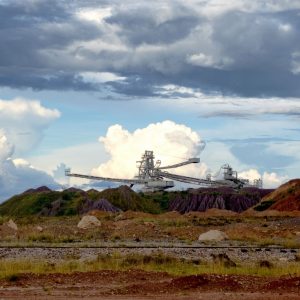The Stream, December 12: Flint Gets Aid For Lead-Contaminated Water Crisis
The Global Rundown
More than a year after news surfaced that the drinking water in Flint, Michigan was contaminated with unsafe levels of lead, federal lawmakers passed legislation to provide aid to the city. Three major water main breaks in the past week flooded city streets and brought attention to London’s aging water infrastructure. Quebec moved forward with legislation that would open up land to oil and gas exploration, raising concerns about fracking operations. Startup companies across the United States proposed new ideas to deal with wastewater from oil and gas activities in Oklahoma. The Chief Minister of Delhi announced his opposition to India’s Sutlej-Yamuna Link canal, a major project that would provide water to Haryana from Punjab.
“I have been asked time and again by opposition parties to clarify my stand on [the Sutlej-Yamuna Link canal]. I stand very clear on it that Punjab has full right over its waters. It has no water to spare for others and thus we will not allow its water to go outside.” –Arvind Kejriwal, the Chief Minister of Delhi, speaking out on India’s controversial canal project that aims to provide Haryana with water from the Ravi and Beas rivers. (The Indian Express)
By The Numbers
$170 million Amount of federal aid the U.S. Congress authorized for Flint, Michigan in a major piece of water legislation over the weekend. The aid is a mix of debt forgiveness, programs to assist those affected by the city’s lead-contaminated water crisis, and funds to help the city replace and repair its water infrastructure. MLive
In context: Learn about the series of governance and infrastructure failures that contaminated drinking water in Flint.
350 people Number evacuated from a London neighborhood after a water main break flooded the area. It was the third major break in the city’s water system in a week, prompting officials to call it a “clear reminder that we need to keep investing in our aging and sometimes fragile network.” Guardian
In context: London isn’t the only city with aging water infrastructure. Communities across America are also contending with old and leaky pipes.
Science, Studies, And Reports
Startups across the United States are proposing new ideas to safely dispose of wastewater generated from oil and gas operations. The underground injection of wastewater has been linked to a proliferation of earthquakes in Oklahoma, but new technologies aim to evaporate, clean, or recycle much of the water to greatly reduce the volume requiring disposal. Bloomberg
On The Radar
New legislation in Quebec would make it easier for companies to explore for oil and gas in the Utica shale and other deposits. Opponents say it will allow exploration activities to occur despite landowner concerns about fracking and drinking water risks, but supporters argue it gives landowners the choice to develop their property. Bloomberg
A news correspondent for Circle of Blue based out of Hawaii. She writes The Stream, Circle of Blue’s daily digest of international water news trends. Her interests include food security, ecology and the Great Lakes.
Contact Codi Kozacek





